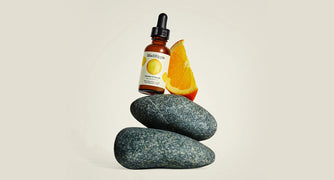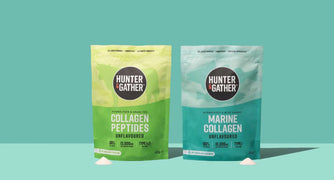The body is wise and will often display in various ways what we are lacking in our diet. If only we knew where to look for the possible answer.
A deficiency in nutrients can commonly result in muscle pain, heaviness, twitching or cramp. Below we will look at possible causes of these common muscle conditions.
6 Causes of Muscle Pain and Discomfort
- Low back pain, inflammation and generalised muscle pain. Chronic low back pain can be associated with Vitamin D deficiency according to several studies. Over the last 10 years research has shown an association with very low Vitamin D status and generalised chronic pain and inflammation. Vitamin D deficiency may lead to greater back pain in postmenopausal women.
- Poor recovery after exercise. An omega-3 deficiency may be slowing your exercise recovery. Research shows the anti-inflammatory properties of omega-3 helps reduce inflammation and muscle soreness post exercise.
- Muscle twitching. Eye twitching is a common issue with research pointing to a calcium/magnesium issue. Twitching, restless legs can cause misery especially at night. It is worth first considering magnesium to see if it alleviates the issue, as is often the case. Perhaps you are taking calcium and your magnesium is now out of balance. Equally, low calcium can be a cause of muscle twitching.
- Burning muscles. A burning sensation in the muscles is caused by a build up of lactic acid and in some cases this is caused by a Vitamin B1 deficiency. This typically occurs in the calves, causing pain, even after a small amount of physical exercise.
- Muscle cramp. Is commonly caused by a deficiency of potassium, magnesium and/or sodium. It is worth considering magnesium first and then potassium or consume an electrolyte combination.
- Muscle weakness. Vitamin E is essential to the central nervous system. A deficiency of Vitamin E can cause muscle weakness, numbness, tingling and difficulty walking. Several studies show that Vitamin E can reverse muscle damage. A study has shown that, “250 mg of vitamin E supplementation at 1 h before exercise reduces cell damage markers after exercise in hypoxia and changes the concentration of cytokines, suggesting a possible protective effect against inflammation induced by hypoxia during exercise.”
And there’s more …
Dehydration and excessive fluid intake can cause cramp, ‘diluting’ the necessary minerals required to maintain healthy muscle function.
Drinking Montmorency cherry juice or taking the capsules can significantly speed up recovery after exercise and reduce muscle soreness according to studies like this.
Soaking in a bath with Epsom or magnesium salts for 20 minutes can really soothe muscles and help replenish lost magnesium through exercise.
Celery juice which naturally contains sodium, potassium, magnesium, chloride and phosphorus is a great way to soothe sore muscles and fight inflammation. You could blend this with pineapple for the added benefit of inflammation fighting Bromelain.
This is the only salt I use. It is naturally grey as it hasn’t gone through any filtering or cleaning processes. It contains bio-available minerals and trace elements (calcium, potassium, magnesium, iron, manganese, sulphur, zinc and other nutritive elements).
Minerals are vital for healthy muscle function!






